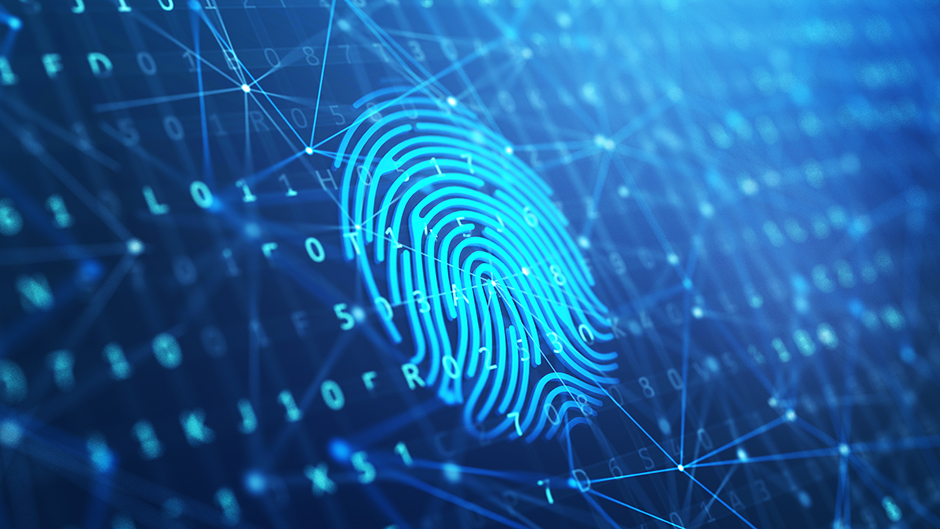Miami Law’s student organizations focus on technology law and criminal law. Recently, the Technology Law Club and Criminal Law Society hosted a discussion regarding the evolving digital landscape, delving into digital identifications/identities and the question of whether society is prepared for the challenges digital IDs may pose to privacy. Spearheading the discussion was a panel of attorneys and engineers representing influential institutions and channeling corporate, criminal, and civil perspectives. Tech Law Club Vice President 2L Diana Milton, Tech Law Club President 3L Alfredo Dally, and CLS President 3L Luciana Jhon hosted the event. Dally moderated the conversation and Q&A.
The informative, well-rounded discussion was a product of the diverse panel: Alexis Hancock serving as the director of engineering at the Electronic Frontier Foundation; Jay Stanley a senior policy analyst with the American Civil Liberties Union Speech, Privacy, and Technology Project; Laura Hecht-Felella, the George A. Katz Fellow for the Brennan Center’s Liberty and National Security Program; and Krystal Bowen, deputy general counsel and Head of Privacy, Product, and Intellectual Property at Zynga.
Emphasis on Privacy
Technology companies and government organizations believe that the time for our digitization is now, according to the panel. With the normalization of contact tracing as a means of fighting COVID-19 came the integration of digital IDs without the necessary protocols in place to ensure the protection of our information.
Already a person is virtually “defined” by the pictures, ideas, purchases, and statements they post online, but a digital ID takes identification of the individual to a place that is more concrete. “A digital ID is an electronic driver’s license or passport, and inherent in the capture, storage, and use of sensitive personal data (like that printed on our licenses/passports) are risks associated with privacy violations, data theft and misuse, identity fraud, and discrimination,” said Hancock.
If done right, the technology that backs digital IDs could improve privacy for holders, but the questions that follow are: first, how do we utilize digital IDs to better secure our personal information? And second, with what standards should we measure our privacy?
Stanley proposed the following example: When buying alcohol at the grocery store or entering a bar, we show complete strangers a driver’s license with the expectation and trust that they look at the year and carry on. Try covering the rest of the information. Now, would they let you walk away with that bottle of wine? “The reaction depends on the person and likely their training, but why do I have to show my address, organ donor status, etc., when that data is seemingly irrelevant to the situation? With a digital ID, the new convention could be sending their server your birthyear or showing a digital version of your license with just your date of birth showing,” he said.
Regarding the second question, the “diffusion of responsibility” mentality “the United States approaches the conversation of privacy with has empowered states like California, Colorado, and Virginia to take ownership of the way in which the information we choose to share is processed, stored, and interpreted. “The standards these states set through their own consumer data privacy laws force other states (and beyond the U.S.) to abide, thus raising the bar of ethical data usage/storage. We are hopeful, though, to see a federal standard of privacy in the near future to further communicate what all digital users should expect,” said Bowen.
Student Organizations expand knowledge and practical influence
The purpose of the Technology Law Club, advised by Professor Andres Sawicki, director of the Business of Innovation, Law, and Technology Concentration (BILT), is to increase awareness of the legal issues technology companies are facing and the technology issues that are impacting communities. The goal of the club is to leverage this awareness to forge careers in technology law for Miami Law students.
The Criminal Law Society, advised by Professor Tamara Lave, is dedicated to the universal ideals of justice and fairness that encompass our society by way of the law. CLS is non-partisan and aims to build relationships among law students from a diverse background and with different career goals who share a common interest in criminal law and the way that society deals with both crime and criminal.
The Technology Law Club and Criminal Law Society were sincerely grateful to the panelists for sharing their expertise with the Miami Law community. “We look forward to the evolution of privacy law and feel rest assured by the panelists’ active participation and supervision of the ever-evolving digital landscape,” said Milton.
More on technology law at Miami Law
More on criminal law at Miami Law
Read more about Miami Law's Student Organizations

